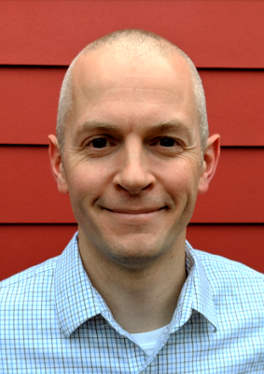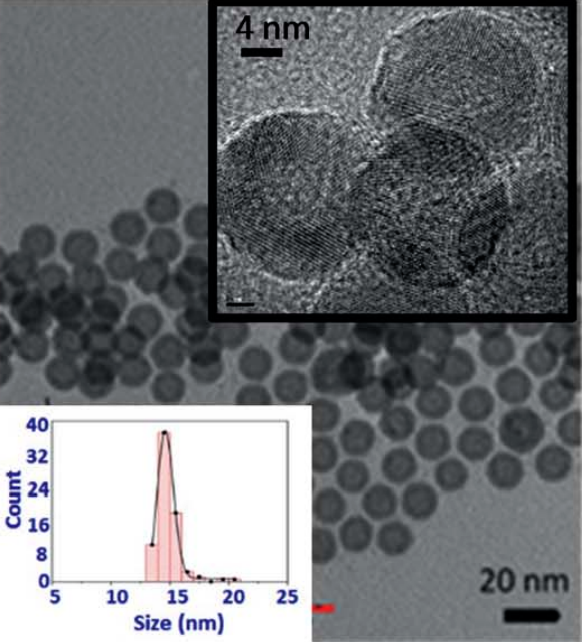IEEE-Madison Meeting Reminders

UPCOMING MEETINGS for IEEE Madison
Power Electronics for Medium Voltage Distribution Networks Applications
IEEE-Madison PES/IAS Chapter
Date: Monday, October 21st, 5:30 PM
UW Engineering Hall, Room 2534
Event Info
Tuning Magnetic Anisotropy in Nanostructures for Biomedical Appications
IEEE-Madison Joint Section/ EMB18 Chapter
Date: Friday, October 25th, 11:30 AM
UW Engineering Hall, Room 2534
Event Info
Made by Them: Maydm's Pursuit of Boldness, Quality, Inclusion, and Reflection in Tech
IEEE-Madison Joint Section/ LMAG Meeting
Date: Thursday, November 7th, 11:30 AM
UW-Space Place
Event Info
October PES/IAS Meeting
"Power Electronics for Medium Voltage Distribution Networks"

- Monday, October 21st, 5:30 PM to 7:00 PM
- Patrick Flannery, American Superconductor, Inc.
- Location:
UW-Madison, Engineering Ha2534ll Room
1415 Engineering Drive, Madison WI 53706 - Please Register at the IEEE-Madison event page.
Talk: Distribution utilities are under pressure to accommodate distributed energy generation, solar, electric vehicles, and other unconventional or bi-directional "loads". These varying loads create voltage quality problems at the medium voltage level not easily corrected with conventional voltage regulators, switched cap banks, etc.
AMSC has developed a power electronic device (D-VAR VVO) that connects directly to the medium voltage distribution grid (without a transformer) for the correction of voltage quality problems. The D-VAR VVO can be sited anywhere a voltage regulator can, and can be installed by utility line crews.
That said, practitioners of power electronics and electric power engineering bring different sets of ideas and expectations to product features, usability, reliability, etc. The technical features of the D-VAR VVO will be introduced and serve to motivate stories and surprises from the VVO product.
Bio: Patrick Flannery is the Director of Research Engineering at AMSC (American Superconductor). He has been with AMSC since late 2008 where he has worked on low and medium voltage power electronics hardware and control systems applied to utility scale wind turbines and STATCOMs. Notable projects include the development of advanced embedded control platforms, leading the LVRT certification testing of several MW-class wind turbines, and leading the development of AMSC's VVO STATCOM product.
He was a Senior Engineer with Soft Switching Technologies (now part of Rockwell Automation) in 2008.
From 1998 to 2001, he worked as an embedded systems and electro-mechanical engineer with CSA Engineering on active vibration cancellation systems.
Patrick has a B.S. in mechanical engineering from the Pennsylvania State University (1998), and M.S. and Ph.D degrees in electrical engineering from the University of Wisconsin-Madison (2003, 2008).
October Joint Section/EMB18 Meeting
"Tuning magnetic anisotropy in nanostructures for biomedical applications"

- Friday, October 25th, 11:30 AM to 1:00 PM
- Dr. Hari Srikanth. Dept. of Physics, University of South Florida
- Location:
Engineering Hall
1415 Johnson Street, Madison WI 53706
Room 2534
- Please Register at the IEEE-Madison event page.
Talk: Magnetic nanoparticles have been building blocks in applications ranging from high density recording to spintronics and nanomedicine. Magnetic anisotropies in nanoparticles arising from surfaces, shapes and interfaces in hybrid structures are important in determining the functional response in various applications. In this talk I will first introduce the basic aspects of anisotropy, how to tune it in nanostructures and ways to measure it. I will discuss resonant RF transverse susceptibility, that we have used extensively, as a powerful method to probe the effective anisotropy in magnetic materials. Tuning anisotropy has a direct impact on the performance of functional magnetic nanoparticles in biomedical applications such as contrast enhancement in MRI and magnetic hyperthermia cancer therapy. There is a need to improve the specific absorption rate (SAR) or heating efficiency of nanoparticles for hyperthermia and I will focus on the role of tuning surface and interfacial anisotropy with a goal to enhance SAR. Strategies going beyond simple spherical structures such as exchange coupled core-shell nanoparticles, nanowire, nanotube geometries can be exploited to increase saturation magnetization, effective anisotropy and heating efficiency in magnetic hyperthermia. This lecture will combine insights into fundamental physics of magnetic nanostructures along with recent research advances in their application in nanomedicine.
Bio: Hari Srikanth is a Professor of Physics at the University of South Florida in Tampa, FL. He received his Ph.D. in experimental condensed matter physics from the Indian Institute of Science. After postdoctoral research for several years, Hari joined USF in 2000 and established the Functional Materials Laboratory. His research spans a wide range of topics including magnetization dynamics in nanostructures, applications of magnetic nanoparticles in nanomedicine and RF devices, magnetic refrigerant materials, spin calorics, microwave materials and complex oxides with competing magnetic phases. He has over 250 publications and has given over 200 invited talks around the world. Hari has developed a short tutorial on nanomagnetism, enjoys delivering pedagogical lectures for a broad audience and especially interacting with students and early career researchers. Hari is a Fellow of the American Physical Society, with the citation mentioning his contributions in the field of nanomagnetism, and a Senior Member of IEEE. He is currently an Associate Editor for Journal of Applied Physics. Hari has been closely involved with the MMM and INTERMAG conferences for more than 15 years serving as Publication Editor, Publication Chair and on program committees. He is also a 2019 Fulbright awardee. Hari has been a short term visiting professor in Slovak Academy of Sciences (Kosice), Basque Center for Materials (Bilbao), Indian Institute of Technology (Bombay), Indian Institute of Science (Bangalore), Federal University of Rio de Janeiro (Brazil) and Immanuel Kant Baltic Federal University (Kaliningrad)
November Joint Section/LMAG Meeting
"Made by Them: Maydm's Pursuit of Boldness, Quality, Inclusion, and Reflection in Tech"

- Thursday, November 7th, 11:30 AM to 1:00 PM
- Winnie Karanja, Maydm, Inc.
- Location:
UW Space Place
2300 South Park Street, Madison WI 53713
Suite 100, Atrium -- Lower Level
- Please Register at the IEEE-Madison event page.
STEM Talk: In 2018, a study by The Equality of Opportunity Project, showed that children at the top of their 3rd grade math class are much more likely to become inventors, but ONLY if they come from high-income families. These were the students who had the necessary exposure to inventors and inventions to pursue a similar career pathway.
The core mission of Maydm is to equip and engage girls and students of color with opportunities in the technology sector through immersive programs that are an integration of technical skills, mentorship and exposure. We offer project-based out-of-school programs that have children building and creating, exposing them to technology, developers, innovation and industries amongst us.
We stand behind our students and fight for them to have the exposure opportunities, relationships, AND skills because we want to see technology made by them. We want to see the innovation they're capable of, the different ideas and perspectives they offer, and the products they create.
IEEE Matching Donations for Maydm: In support of STEM programs, the IEEE Madison Section will match any donations (to a $1000 total limit) to Maydm's STEM program. Maydm, a 501(c)(3) organization, would use your tax-deductible donation to build and enhance STEM programs. This would support the development of Maydm's immersive summer web development programs including curriculum and assessment creation, program materials, and student scholarships.
Bio: Winnie Karanja is the Founder and Executive Director of Maydm, an organization focused on equipping girls and youth of color in grades 6-12 with skill-based training for the technology sector through workshops and summer programs. With a background in education, technology and workforce development, Winnie has worked on national data projects, has led economic development initiatives, and is committed to equipping youth in utilizing and understanding the power of technology to fuel their dreams.
Winnie holds a Master of Science in Development Studies from the London School of Economics and Political Science and a Bachelor of Arts in Education and International Politics.
In her free time Winnie enjoys being outside, reading, and finding all the best food destinations.

